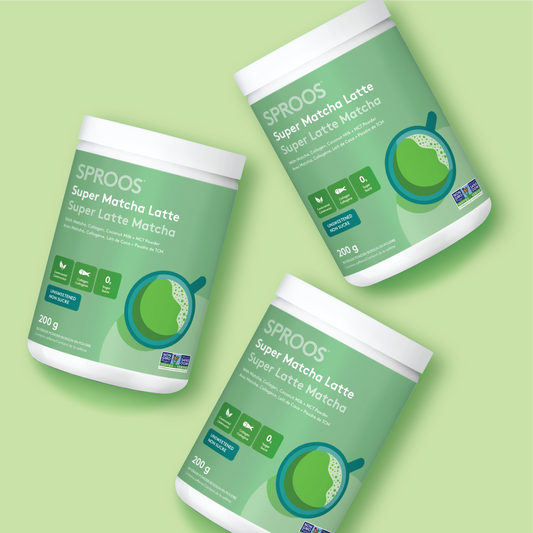La méditation existe depuis des siècles en tant que technique efficace pour calmer l'esprit et le corps. Des milliers d'études ont montré comment la méditation impacte positivement la santé mentale et physique. De l'amélioration du sommeil et la réduction du stress à l'augmentation de la concentration, la recherche prouve que la méditation fonctionne. Dans la vie trépidante et parfois frénétique d'aujourd'hui, prendre un moment pour se tourner vers l'intérieur et méditer peut apporter de nombreux bienfaits. À mesure que de plus en plus de personnes découvrent ses avantages, la méditation devient de plus en plus populaire. Une habitude quotidienne de méditation est puissante et peut conduire à un changement véritable. Que ce soit en se rendant à votre cours de méditation le plus proche ou en utilisant des applications comme Headspace et Calm.
Pourquoi la méditation est-elle si populaire ?
Les techniques méditatives et de pleine conscience prennent différentes formes mais servent le même objectif. Les deux aident à gérer le stress et la santé mentale tout en augmentant la conscience de sa propre santé mentale et physique. Alors que la préoccupation pour la santé mentale a atteint un niveau inédit dans le monde entier, beaucoup de personnes se tournent vers la méditation. Selon le Centre for Addiction and Mental Health,
un Canadien sur cinq souffre d'une maladie mentale ou d'un problème de dépendance à un moment donné de l'année. Seulement la moitié de ces personnes sont prêtes à en parler à un ami ou un collègue, contre 72 % pour un diagnostic de cancer. La méditation a plusieurs applications concrètes, de la salle de classe au lieu de travail. Il existe de nombreux types de méditation. Les principaux types sont la méditation de pleine conscience et la méditation concentrative. Avec la méditation concentrative, le but est de se concentrer sur une chose, que ce soit votre respiration ou un mantra. La méditation de pleine conscience implique un état de conscience du moment présent et d'acceptation et d'ouverture. Voici cinq autres types de méditation :
- Méditation guidée
- Méditation transcendantale
- Méditation par mantra
- Méditation en mouvement
- Méditation spirituelle
Pendant la méditation, nous essayons d'éliminer le désordre mental. Bien sûr, c'est plus facile à dire qu'à faire, c'est pourquoi il est essentiel de développer une pratique méditative régulière. La méditation peut produire un état profond de relaxation et un esprit clair, améliorant votre bien-être physique et émotionnel.
5 bienfaits scientifiquement prouvés de la méditation
Regardons les bienfaits de la méditation et les recherches qui les soutiennent.
1. Réduire le stress et l'anxiété
L'une des raisons les plus courantes pour lesquelles les gens essaient la méditation est de réduire et gérer le stress. Une étude portant sur plus de 3 500 adultes a trouvé que la méditation était très
efficace pour réduire le stress. Les chercheurs ont constaté que les programmes de méditation entraînaient une réduction faible à modérée dans plusieurs domaines du stress psychologique. La méditation peut vous aider à acquérir une nouvelle perspective sur les situations stressantes. Elle peut vous aider à développer de nouvelles compétences d'adaptation pour gérer le stress et l'anxiété. Une
étude de huit semaines a montré que la méditation de pleine conscience réduisait l'anxiété ainsi que les symptômes des troubles anxieux comme les attaques de panique, l'anxiété sociale et les pensées paranoïaques.
2. Augmenter la concentration
La méditation aide à affûter le cerveau en augmentant la concentration et en relaxant l'esprit. La pratique méditative peut augmenter votre capacité d'attention, vous permettant de vous concentrer plus longtemps. Une étude a examiné les effets d'un programme de méditation de huit semaines. Les chercheurs ont constaté que le cours de méditation de pleine conscience
améliorait la capacité des participants à maintenir leur attention.
3. Améliorer la mémoire
Mettre au défi vos capacités de réflexion et de mémoire peut aider à garder votre esprit jeune. La méditation aide à améliorer la mémoire de travail et votre capacité à mémoriser de nouvelles informations. Une revue de 12 études a trouvé que divers styles de méditation aidaient tous à améliorer
la mémoire, la concentration et la rapidité mentale chez les participants plus âgés.
4. Favoriser le sommeil
On estime que
un Canadien sur trois ne dort pas les sept à neuf heures recommandées chaque nuit. Si vous ne respectez pas votre dose recommandée de sommeil, vous n'êtes pas seul. Les données de
Sleep Cycle montrent qu'aucun pays au monde ne dort régulièrement huit heures chaque nuit. La méditation peut aider à relaxer votre corps et à libérer la tension. Une étude a montré que les participants qui pratiquaient la méditation
s'endormaient plus rapidement et restaient endormis plus longtemps comparé à ceux qui ne méditaient pas. Pour vous aider à
mieux dormir la nuit, essayez d'éviter la caféine après le déjeuner et créez une routine de coucher.
5. Diminuer la pression artérielle
La méditation bénéficie à la fois à la santé mentale et physique. Avec le temps, une habitude régulière de méditation peut améliorer la santé physique. Elle peut diminuer la pression artérielle en réduisant la charge sur le cœur. Une pression artérielle élevée prolongée peut contribuer au rétrécissement des artères. En conséquence, cela peut entraîner des AVC et des crises cardiaques. Une étude menée auprès de 996 volontaires a examiné les effets de la méditation utilisant un mantra silencieux. Les participants se concentraient sur la répétition du mantra dans leur esprit. Les chercheurs ont rapporté une
diminution de la pression artérielle d'environ cinq points, en moyenne.
Comment créer une pratique quotidienne de méditation
Il est plus simple que vous ne le pensez de commencer une pratique quotidienne de méditation et de s'y tenir. Nous connaissons les bienfaits de la méditation et comprenons qu'elle peut améliorer notre bien-être global. Mais, entre les engagements professionnels, les courses et le temps en famille, la vie peut s'interposer et il peut être difficile de maintenir une pratique quotidienne de méditation. Si cela vous semble familier, vous n'êtes pas seul ! La méditation peut augmenter la concentration, améliorer votre santé et aider à réguler vos émotions. Comme toutes les habitudes positives, cela prend du temps et des efforts pour se former, mais avec les bonnes techniques, vous pouvez créer une pratique que vous aimerez. Alors, commencez par vous réserver un moment rien que pour vous. Choisissez un moment dans la journée, que ce soit quelques minutes libres pendant que vous
buvez votre café du matin ou peut-être juste avant de vous coucher. Voici six étapes à suivre pour créer une pratique de méditation apaisante et relaxante :
- Fixez un objectif réaliste
- Mettez-vous à l'aise
- Créez une routine
- Soyez bienveillant envers vous-même
- Perfectionnez votre technique
- Respirez simplement
Pour intégrer la méditation dans votre journée, concentrez-vous sur la formation d'habitudes positives. Lors de la création de nouveaux schémas, la répétition est bénéfique. Méditez à la même heure chaque jour. Si vous êtes un lève-tôt, une méditation matinale serait idéale pour vous. Lorsque vous fixez un objectif, assurez-vous qu'il est réalisable. Vous pouvez commencer par une méditation de 10 minutes chaque jour pendant un mois, puis augmenter progressivement la durée. La méditation est une technique de relaxation ; il s'agit de se concentrer pour ne pas penser. Parfois, le bavardage mental peut devenir si fort qu'il est difficile de penser. En incorporant une pratique régulière de méditation dans votre journée, vous pouvez améliorer votre bien-être physique et mental.
















11 commentaires
I’m happy you taught us that by allowing our bodies to unwind and let go of tension, meditation can aid in promoting sleep. I wanted to find techniques to enhance my sleep without heavily depending on medicine because I’ve been having trouble sleeping lately due to my sadness. I’ll be sure to take meditation for creating a better life into account once I locate a beginner’s manual to follow. https://creativegroup.org/welcome/
Over the past weeks, I’ve been under a lot of stress, and I think it’s affecting my sleeping schedule, so before it affects my health, I need to do something about it. That’s why I’m glad you talked about how meditation helps you relax your body and improve your sleep routine, so I’ll give it a try tonight to see if it helps me. Thanks for the tips on how to fall asleep faster at night with meditation. https://mrshollies.com/spiritual-healing
I’m glad you told us that meditation can help promote sleep by allowing our bodies to relax and release tension. I’ve been having difficulty sleeping lately because of my depression, so I wanted to find ways to improve my sleep without relying too much on medication. I’ll be sure to consider meditation once I find a beginner’s guide to follow. https://mattprezioso.com/learn-to-meditate
Thank you for pointing out how meditation can help with sleep. My sister was telling me that she’s been really struggling with sleep lately. I’ll have to share this with her as a possible solution to help her. https://mattprezioso.com/learn-to-meditate
Meditation has many benefits for sure. I also have a blog where I upload meditation-related posts. Check it out: yourmentalhealthpal.com.